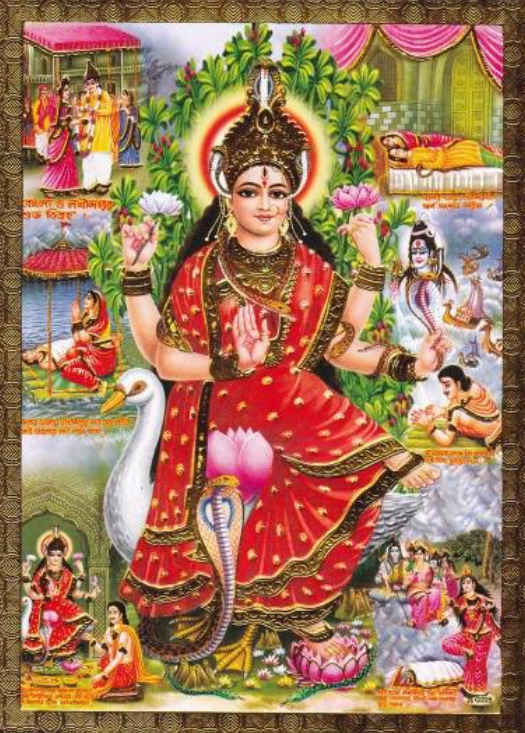In the ancient cultures of the Viracocha Aryans in South America, the word 'Mana' was used for spiritual power. This is similar to its use in the Far East regions. In Hinduism, the ancient serpent Goddess is called Manas and Manasa and relates to the moon. In ancient Greek, Mana means Mother, and Monad is actually spelled Monas. The rune Mana, also spelled Manas, is an important rune and also means moon.

The Goddess Manasa
In the Sanskrit texts, 'Manas,' also spelled 'Manasa' and 'Mana,' is associated with the Ajna chakra, the sixth chakra, as well as with the region of the pineal gland. The concept of this was stolen by the Jews and put in their bible as the "manna from heaven." They make a big deal out of this in their Kabbalah. Just more stolen and corrupted information. The ancient Greeks call Mana the golden rain or dew from heaven. This relates to the whitening of the metals—the transformation of the chakras by the Amrita, or golden rain. This Golden rain is also called the Golden nectar in Taosim and is described as the taste in the mouth that comes with the activation of the pineal region in the head. The White is also the color of the dew or drop of Shiva, which relates to the Moon center. Mana is a stolen mantra to activate the pineal region. In Sanskrit, it rules the total enlightenment of the mind.
Sources
- The Greek Kabbalah, Barry
- The Magicians Of The Gods, Graham Hancock
- The Return Of The Serpents Of Wisdom, Pinkham
- Mary Magdalene: The Illuminator, William Henry
